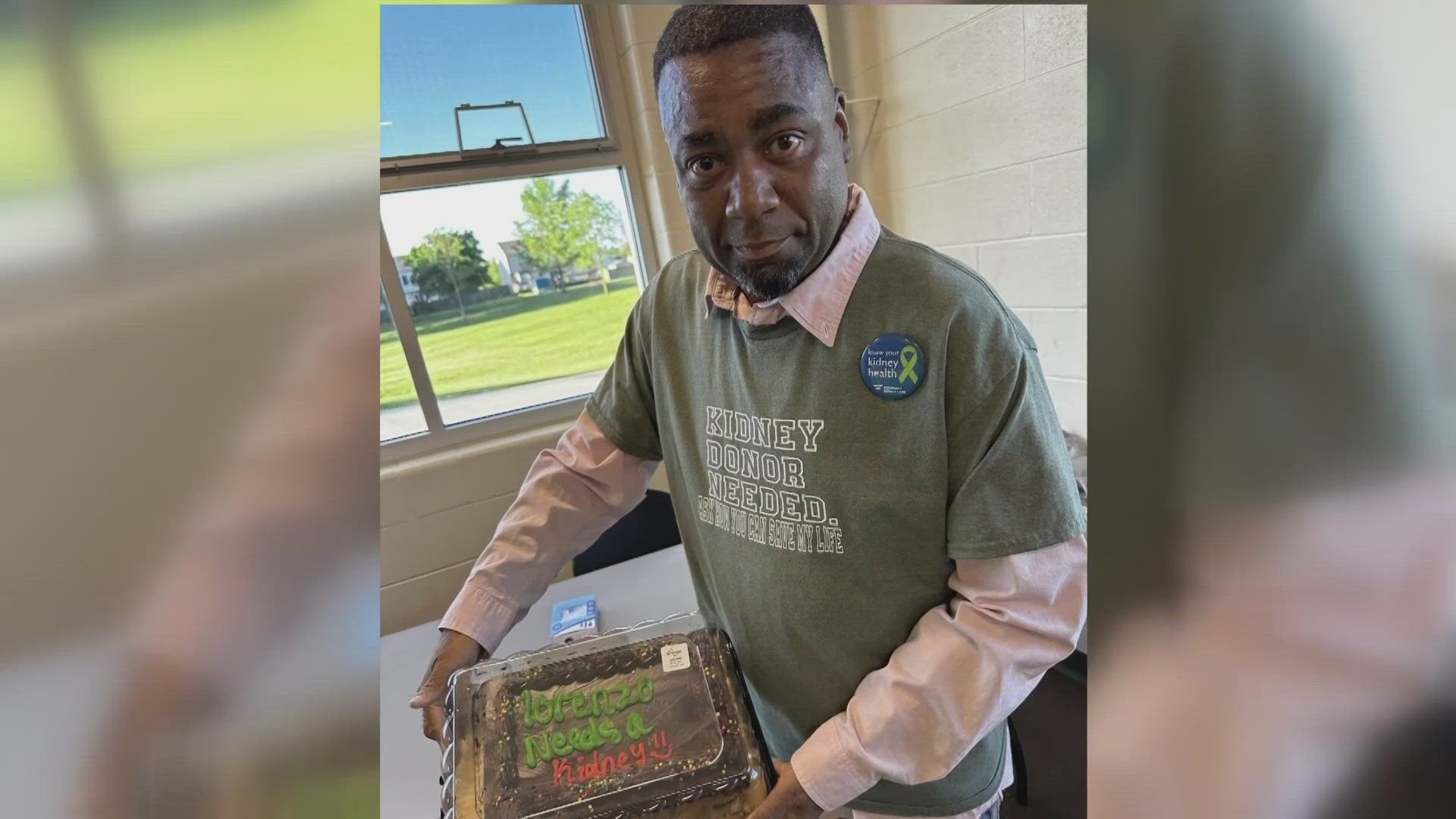COLUMBUS, Ohio — Across the country, more than 15,000 Black patients moved up the kidney transplant list in the past year. This followed a change to a kidney testing equation implemented in 2023 to eliminate a racially biased test. Hundreds of Black people living in Ohio were impacted.
Columbus resident Lerenzo Rudolph found out he had kidney disease in 2013 and is currently on the kidney transplant list.
"I went through depression once over it wishing that someone would donate their kidney to me," Rudolph said.
He said the emotional toll of waiting for a kidney is mentally exhausting, but he continues to advocate for himself on social media and around the city of Columbus.
"You can't just sit around and just think you're going to get one. And you can't think that your life is going to not continue," Rudolph said.
During an already challenging time, thousands of Black patients found out that because of their race, they were waiting even longer for a kidney transplant.
"At first I was like man, like I will never get a kidney waiting and thinking that this whole process to me felt like it was just harder for us to be able to get one."
At issue is a once widely used test that overestimated how well Black people’s kidneys were functioning, making them look healthier than they really were — all because of an automated formula that calculated results for Black and non-Black patients differently. That race-based equation could delay diagnosis of organ failure and evaluation for a transplant, exacerbating other disparities that already make Black patients more at risk of needing a new kidney but less likely to get one.
"What's so challenging about using race in this manner though is that race is a social construct, it's not biologically based. I can't look at a person's clinical labs and determine what race they are. I can't even look at their genetics and determine what race they are," Dr. Ray Bignall said.
Bignall treats kidney conditions and is a physician advocate and chief diversity and health equity officer at Nationwide Children's Hospital.
"One of the things that I think is most important for people to understand about these changes to the estimating equation for kidney function is that it's based on science," Bignall said.
Since the policy change was made to drop race as a factor, the Organ Procurement and Transplantation Network processed modifications for 322 Black Ohioans.
"The National Kidney Foundation and the American Society of Nephrology who together developed a task force to take another look at the equations that we were using and recommended race-neutral equations that are actually better in performance algorithm locally for helping to estimate kidney function," Bignall said.
This moved Black patients up the priority list for their transplant and Rudolph said he is now one of them. Of the more than 320 Ohioans impacted, close to a hundred have had a kidney transplant, but he wonders if the damage has already been done for others.
"There's been a lot of people out there that's waited a long time and I have friends and I have other people that I have talked to that have said they have family members that are African American that passed away because they didn't have this chance," Rudolph said.
Rudolph said waiting for so long is what messes with him and is what he believes makes people want to give up, but Bignall hopes this policy change will encourage people to keep advocating for themselves,
"Take hold of that hope, engage with your kidney health providers, ask them about being on the kidney transplant list, discuss with them the decisions that go into not only you being listed for a kidney transplant, but also receiving the therapies that you need prior to that to hopefully preserve your native kidney function for as long as possible," said Dr. Bignall.
Rudolph encourages people to look into becoming donors to help people like him, who hope to find a donor soon.
He said, "It's not going to be rough on you. Trust me. It's just you saving another life. You should feel real good and proud of yourself that you're saving another person's life."

